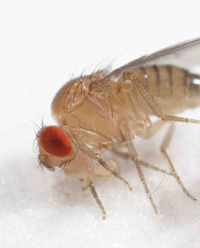Host Immune Strategies: Remembering, Resisting, Tolerating, and Being Specific
PhD student:
PhD student:

Parasites can have strong negative fitness effects on their hosts. This creates a powerful selection pressure on a host to have an efficient immune system. The immune system should be able to recognise and discriminate between many different parasites, and respond in a way that maximises host fitness. Broadly speaking, this results in two different defence strategies: resistance and tolerance. Resistance is expected to lead to antagonistic coevolution between the host and the parasite. However little is known about how tolerance can affect coevolution. As well as evolving defences, within its lifetime the previous parasite experience of the host can also influence the effectiveness of its defences. Indeed some invertebrates can show a phenomenon similar to vertebrate immune memory, with an unexpected degree of specificity towards different parasites. In this proposal we will examine host-parasite interactions in the fruit fly, Drosophila melanogaster, from two perspectives. First we will address previous parasite experience and determine whether it affects the strategies of resistance and tolerance, which could have implications for host-parasite coevolution and help to understand life-history constraints. Second we address a potential genetic basis for recognition of specific parasite antigens, by testing the role of the putative immune receptor, Dscam (Down syndrome cell adhesion molecule). This gene is massively diversified at the genetic and somatic level, and as such it has been hypothesised that it could provide the diversity necessary for specific immune responses. We will also combine specific immunity with tolerance and identify whether this gene influences parasite resistance and tolerance. We hope that these experiments will provide insight into the ecology and evolution of host-parasite interactions, specifically in the context of resistance, tolerance and immune specificity.